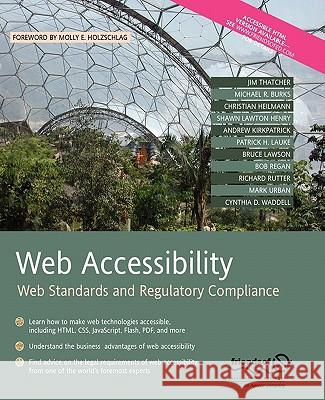Web Accessibility: Web Standards and Regulatory Compliance » książka
Web Accessibility: Web Standards and Regulatory Compliance
ISBN-13: 9781590596388 / Angielski / Miękka / 2006 / 696 str.
The Challenge of Accessibility When Tim Berners-Lee created the Web, he had some very specific goals in mind. Certainly, creating a technology that allowed the sharing of information was a main part of that goal, but an interesting piece of Berners-Lee's vision has always had to do with the human side of the Web. After all, it's not machines that use the Web, but people. Accessibility has become a hot topic in web design, despite the fact that it has always been a part of the original vision. In a broad sense, accessibility simply means ensuring that a given page on the Web is able to be accessed. Accessibility is not about disability; rather, it's about people getting to the shared information that the vision of the Web has made manifest. There has also been a lot said about how accessibility relates to web standards and vice versa. Realistically, accessibility relies on aspects of related web standards, but has in fact become a science, art, and practice of its own. It's a deep specialty, and one that is highly problematic, as what might make a page accessible to one person could conceivably render it inaccessible to another.











